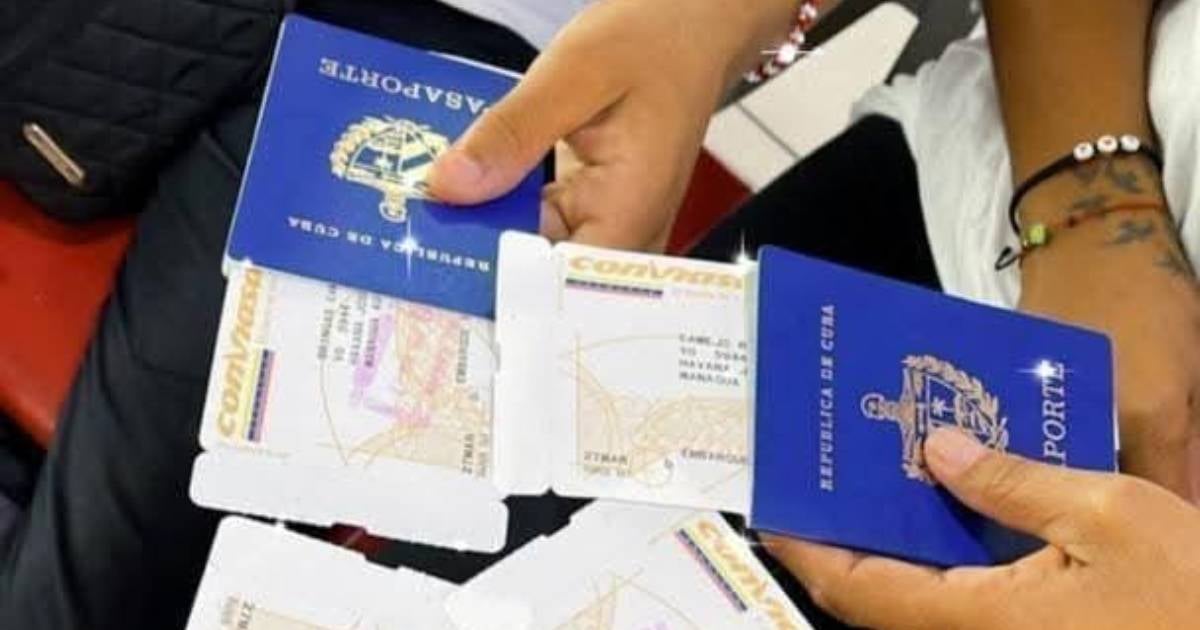In the midst of Cuba's severe migration crisis, a resident from Ciego de Ávila has made a startling offer: his fully furnished home in exchange for two plane tickets to Guyana. This desperate plea, which appeared in a Facebook group named "Cubans in Guyana Georgetown," highlights the extreme measures citizens are willing to take to escape the island's deteriorating social and economic conditions.
The anonymous post starkly states, "Offering a house in Cuba (Ciego de Ávila) for two tickets and I'll leave everything inside." While details about the house, its exact location, condition, or estimated value remain undisclosed, the message is clear: one's home, a prized asset in Cuba, is now a bargaining chip for a new life abroad.
Rather than being an isolated incident, this offer was echoed by several others. "I also have a small house in Havana for two tickets," one woman commented. Another user was equally explicit: "Offering a house and more for tickets to Guyana." One user even offered her home for just a single ticket to Uruguay: "I'd give a house for one ticket to Uruguay," she wrote.
Desperation in the Face of Economic Decline
This phenomenon underscores Cuba's harsh reality: a mass exodus where abandoning everything seems rational amid the island's bleak future prospects. A home, once a symbol of stability, is reduced to a mere instrument for migration.
In these discussions, some inquire about specifics: "Which part of Ciego?" while others simply say "DM me," eager to close deals swiftly. There's an air of urgency, need, and resignation. Such posts are now common in migration forums, where Cubans barter their most valuable possessions—homes, motorcycles, appliances—to fund journeys to visa-exempt countries like Nicaragua, Suriname, or Guyana, gateways to the U.S. southern border.
According to U.S. official statistics, over 850,000 Cubans have left since 2022, many braving perilous paths through Central America. In the fiscal year 2021-2022 alone, more than 220,000 were apprehended at the U.S.-Mexico border.
The Root Causes of the Cuban Exodus
While ruler Miguel Díaz-Canel blames the embargo for this mass departure, arguing "Cuba's migration exodus correlates with the embargo's tightening," experts and the Cuban diaspora agree that economic decline, political repression, and lack of future prospects are the real drivers behind the mass escape.
This migration crisis has left visible scars: Cuba ended 2024 with fewer than 10 million residents and the lowest birth rate in over sixty years, according to the National Office of Statistics and Information (ONEI). The island loses hundreds of thousands annually to migration and aging, a process the regime itself calls "irreversible."
Amidst this demographic collapse, official narratives attempt to rewrite history. A recent state television report claimed mass migration did not start with the 1959 Revolution. However, statistics tell a different story: Cuba shifted from being a migration destination to expelling its own, in an unending wave.
Countless families have been irreparably split. Children who will never see their parents again. Grandparents who pass away without embracing their grandchildren. The pain of exile is as normalized as the desperate act of trading a home for tickets abroad.
Key Questions About Cuba's Migration Crisis
Why are Cubans offering their homes for plane tickets?
Many Cubans are willing to trade their homes for plane tickets due to the severe economic and social conditions on the island, which have prompted a mass migration as individuals seek better opportunities abroad.
What are the main destinations for Cuban migrants?
Popular destinations for Cuban migrants include countries like Nicaragua, Suriname, and Guyana, which do not require visas and serve as routes to the U.S. southern border.
What is the impact of this migration on Cuba's demographics?
Cuba faces a demographic crisis with a declining population, fewer births, and an aging populace, exacerbated by the continuous migration of its citizens.
